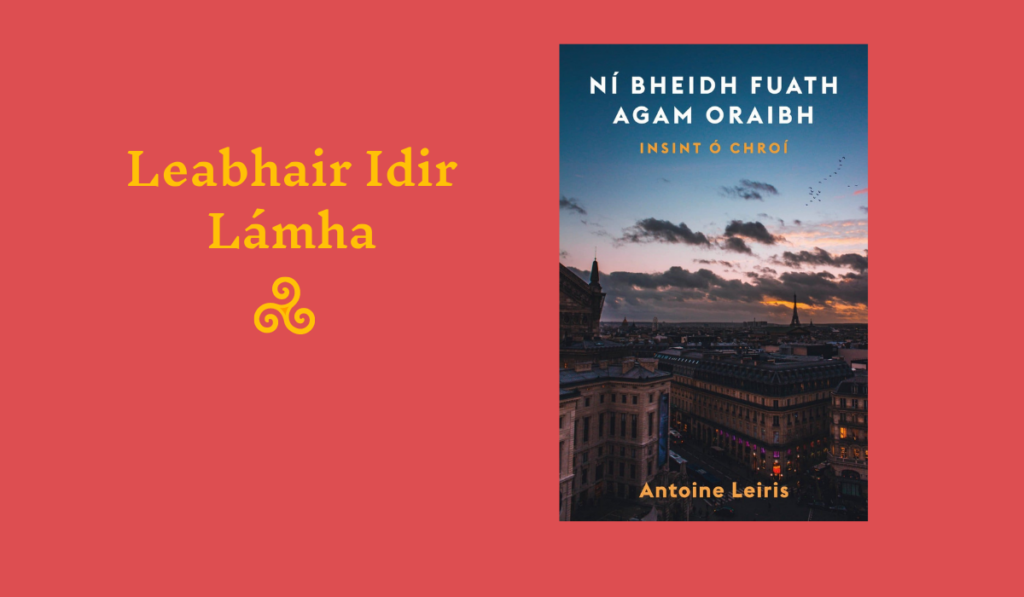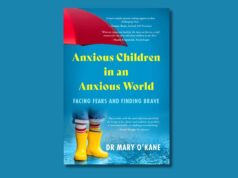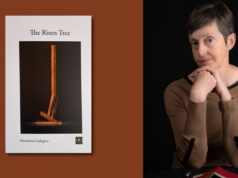
by Cathal Póirtéir
This short and emotionally powerful work was originally written in French in the weeks following the Bataclan massacre in Paris in 2015 by the husband of one of the victims.
It began life as an open letter on Facebook, telling the killers that he would not give them the satisfaction of hating them and detailing the events of his daily life in the period that followed. When published as a book it became a world-wide best-seller. The Irish language translation by Colm Ó Lorcáin comes as part of a LeabhairCOMHAR series directed primarily at adult learners of Irish.
The language here is simple and direct and translations of difficult or unusual words are provided in footnotes and in a glossary.
Eighty-eight people died in the attack on the Bataclan music venue and each victim and each family will have had their own tragic tale to tell. Ní Bheidh Fuath Agam Oraibh is the reply one husband and father gives to the mass-murderers who took away his wife and their young son’s mother. The account focuses on this family in the lead-up to that terrible night, the panic and confusion when word of the attack first reaches him—and the discovery that his wife was one of the victims. Antoine Leiris details how he deals with his grief, his son and with other people in the aftermath of the slaughter.
One of his coping mechanisms was to write the letter which became this book. In it he refuses to give in to the hatred that created the people who carried out the attack.
He will not fear them and tells them that they have failed to make him suspicious of his fellow citizens or to sacrifice freedom for security. He and his son together will be stronger than any army. The terrorists will have to endure his son’s lifelong happiness and freedom. They would not have his hatred either.
The book opens on the day of the attack, a day when his wife Hélène Muyal-Leiris is excited to be going with a friend to the concert in the Bataclan that night. Antoine is happy to stay at home with their seventeen month old son Melvil. At the time he was working as a cultural commentator for a couple of French radio stations and was reading a book after he had put their son to bed. Following the first attack at the Stade de France, a text arrives and he turns on the television to see early reports of the Bataclan attack, where Hélène has gone. Confusion, panic, fear. He turns off the television. A call from the wife of the friend who has gone to the Bataclan with Hélène informs him that she’s heard her husband is safe. Antoine calls repeatedly but gets no reply. He waits anxiously. One hour, two hours, three hours. Finally his sister-in-law contact him with the devastating news.
The story is not unremittingly dark. The author gives us descriptions of the continuing daily joys and duties of parenthood and life with his son—bath-time, story-time, meals—but he has to find a way of telling him that his mother will never come home, that she has been killed. This, and many of the other scenes are heartfelt and heart-breaking. In simple, spare language the writer traces his feelings over a number of days following the massacre: he visits his wife in the morgue; the mothers at the crèche organise a rota to make sure that father and son have food and support; family and friends try to find words to sympathise; strangers contact him offering support; the funeral must be arranged and attended; he imagines revenge.
Finally he decides he will not allow his wife’s killers to define his life or his son’s. He knows the world will eventually move on and that they will be left to deal with their loss on their own. They will do that in a way they themselves choose.
More than anything else, the writer’s love for his wife shines through his loss. He adored her winning smile, her physical beauty and her Parisian sophistication. She was too good for a plain man like him but they fell in love anyway and she became the centre of his life. Without her, he focuses on their son and his present daily needs and his future. Melvil’s needs dictate what he does with his time.
The meeting with his wife’s companion on the night of the attack is difficult for both of them. His friend is caught between reliving the details of the attack, in which he was also shot, and his efforts to live in the present and get on with life. Leiris understands that he, and his friend, have become totems for people whose inquiries about how they feel are impossible to answer truthfully or fully. He knows death can neither be cured or overcome but visiting Hélène’s grave with Melvil reminds him that they are not entirely on their own, that they will not face life as two but as three.
Violent death and its legacy is a difficult subject but this memoir is very easy to read. The writer’s honesty and resolve to defeat hatred is not so easy to forget.












